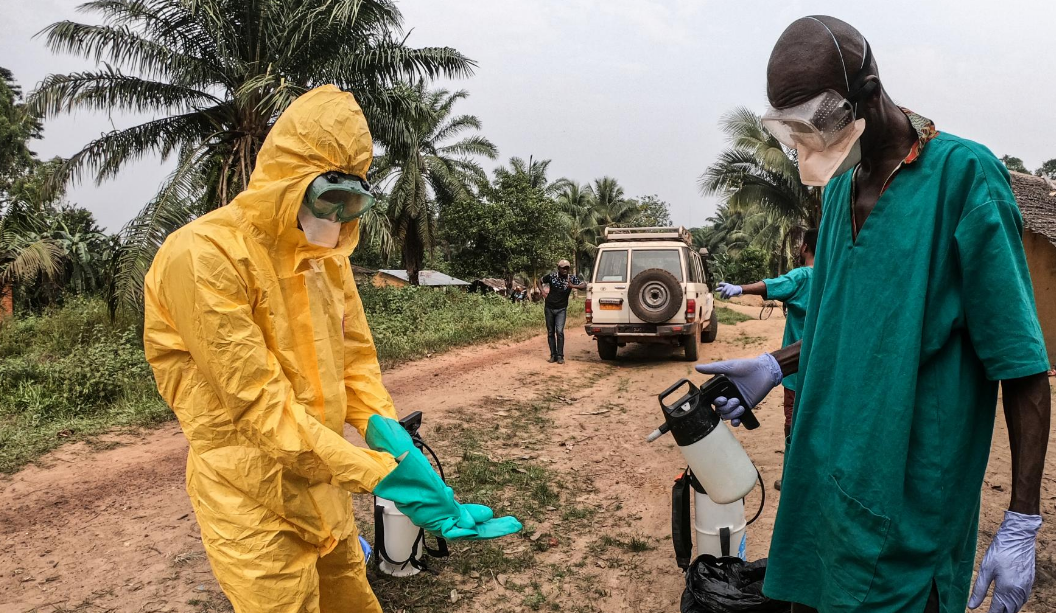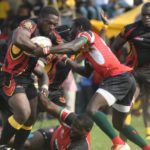The leadership of the Ugandan Ministry of Health, the World Health Organization (WHO), and other health partners visited the Ebola-affected areas of Mubende district on 24 September to assess the health situation, understand the gaps and strengthen the response to the Ebola outbreak in the country.
The delegation was led by the Minister of Health, Dr. Jane Ruth Aceng, and accompanied by the WHO Officer-in-Charge, Dr. Bayo Fatunmbi, representatives of various health development organizations and implementing partners, and three members of the Ugandan Parliament.
Starting with the National Task Force meeting at the City Hall in Mubende district, Health Development and implementing partners discussed the situation of the outbreak and engaged in their various capacities to support the response. They highlighted the need to strengthen community surveillance and risk communication as basics in any response outbreak.
“Ebola is real, and we need to eradicate this outbreak as early as possible. The cases we already have in the country are enough and we can’t afford to lose more. Let’s all mobilize our resources being technical, financial, or operational to tackle the outbreak,” Dr. Jane Ruth Aceng Acero, the Minister of Health in Uganda.
“Since the beginning of this pandemic, WHO has always stood by the government to prevent its spread. We have deployed our staff and mobilized operational resources to Mubende district to strengthen the response in case management, risk communication, Infection Prevention, and Control, community engagement, and surveillance,” Dr. Bayo Fatunmbi, WHO Cluster Lead for Communicable and Non-Communicable Diseases.
The team further visited communities composed of Community leaders, Village Health Teams, and other members to raise awareness of the outbreak and encourage them to corporate in the response.
“If you know any person with Ebola or who is a contact, please report. Early diagnosis is very important to reduce the death risk. I want to encourage Village Health Teams to move doors to doors to identify people with signs and symptoms of Ebola,” Dr. Jane Ruth added.
Health Development partners also visited some possible centers in Madudu district where Ebola health Centres can be installed for a quick response.
Since the Ebola outbreak was reported in Uganda on 20th September 2022, the country has so far registered 31 cases and 19 deaths as of 24th September 2022.
WHO has deployed its staff to support the response in the affected districts. The organization has supported the training and deployment of the Rapid Response Teams (RRTs) and provided the Mubende Regional Referral Hospital with three Ebola kits to manage Ebola patients and save lives.
WHO support has also enabled the development of the National Response Plan and the activation of District Task Forces (DTFs) in 10 high-risk districts, including Mubende, Sembabule, Kyankwanzi, Kampala, Mityana, Kyegegwa, Gomba, Kiboga, Kassanda, Kazo, Kakumiro, and Kibaale.
There are several vaccine candidates for Sudan Ebola virus in development. Experts will examine these vaccines and see whether they can be used in Uganda. However, other health measures such as swift detection, community engagement, isolation of patients, and early supportive care have proven to save lives in similar outbreaks.
The population is encouraged to report all signs and symptoms of Ebola, including sudden onset of fever, headache, intense body weakness, muscle pain, sore throat, vomiting, bloody diarrhea or urine, and bleeding from a body opening.








